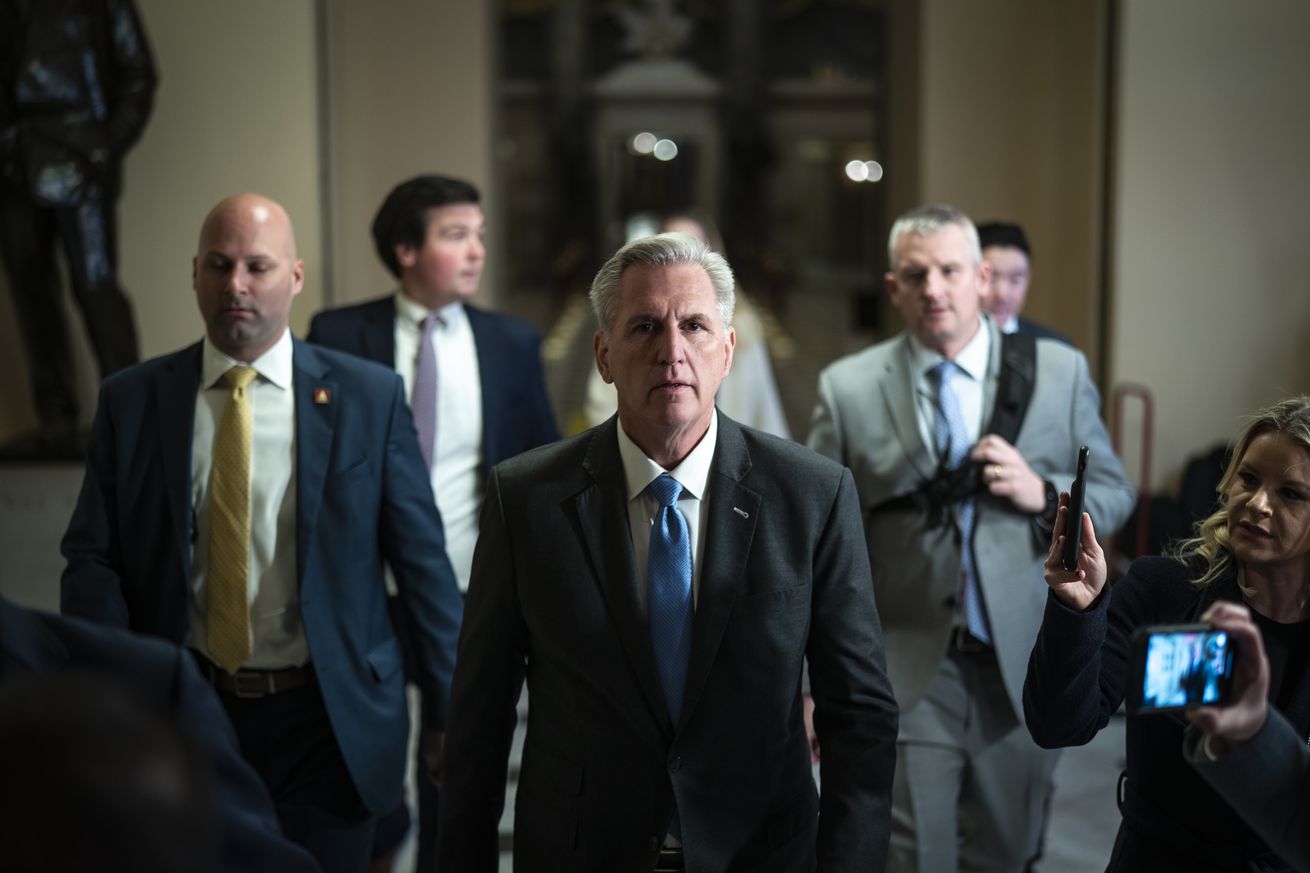
What a Speaker McCarthy means for Big Tech
The House Republican majority is finally underway, and newly elected Speaker Kevin McCarthy (CA) has made big promises about what his leadership means for big tech companies, including a brand new subcommittee tasked with investigating allegations of censorship.
This new panel, called the Select Subcommittee on the Weaponization of the Federal Government, has been empowered to go after any GOP-perceived wrongdoings of the Biden administration against conservatives, including oversight of ongoing federal investigations into former President Donald Trump. While Republicans have promised to investigate everything from the origins of the novel coronavirus to Hunter Biden’s laptop, the new panel could also become the epicenter for their probes into “Big Tech” and its alleged censorship of conservatives.
Assuming the speakership and the Judiciary Committee gavel this month, McCarthy and the panel’s expected chair, Jim Jordan (R-OH), will become some of the GOP’s most powerful leaders in its battle against Big Tech. But while the pair has championed the fight against alleged platform bias and Section 230 reform, they’ve repeatedly opposed bipartisan antitrust measures that critics claim would meaningfully curb the platforms’ power to restrict speech.
“McCarthy and Jordan do Big Tech’s bidding, and I have no confidence this will change”
“Unless they support bipartisan antitrust reform, the rest of their work on Big Tech is performative,” Mike Davis, head of the right-wing advocacy group the Internet Accountability Project, said in an interview Tuesday. “McCarthy and Jordan do Big Tech’s bidding, and I have no confidence this will change.”
Jordan, a McCarthy ally and member of the hard-right House Freedom Caucus, has risen from the GOP fringes to top leadership positions in recent years as the party more closely aligned itself with Trump. Jordan has made countless Fox News and Newsmax appearances attacking online platform moderation regimes as biased and, most recently, has sounded the alarms over “Twitter Files” revelations of alleged collusion between the Biden campaign and Twitter to censor stories like the New York Post’s original coverage of Hunter Biden’s laptop.
On December 14th, Jordan wrote letters to five of the largest tech companies, including Meta and Google, demanding they hand over all correspondence between their companies and Biden administration officials once he took the helm of the Judiciary Committee in January.
“Although the full extent of Big Tech’s collusion with the Biden administration is unknown, there are prominent examples and strong indications of Big Tech censorship following directives or pressure from executive branch entities,” Jordan wrote. “Because of Big Tech’s wide reach, it can serve as a powerful and effective partisan arm of the ‘woke speech police.’”
Despite the alarmist rhetoric over Big Tech’s power over speech, Jordan has repeatedly opposed measures to curb the companies’ market dominance. Throughout the last Congress, House Democrats led a sweeping 16-month-long investigation into four major tech companies: Amazon, Apple, Meta, and Google. They issued a final report in 2021 detailing the ways in which the companies might unlawfully maintain their market dominance and introduced several bills to reform antitrust laws to better regulate the industry. Jordan filed dissenting views to the report, arguing that its findings could “overhaul antitrust laws that apply to every sector of the American economy.”
Jordan once again came out against antitrust reform in September, opposing a bill that would increase the fees tech companies are required to pay when they file an upcoming merger with the federal government. Jordan said the proposal amounted to free money for the Federal Trade Commission and its leader, Lina Khan, who has groomed the agency into a “platform for activism.”
“Both McCarthy and Jordan like to complain about Big Tech for the TV cameras, but behind the scenes, they’re more or less helping Big Tech lobbies check off everything on their wish lists,” Evan Greer, director of Fight for the Future, a digital rights group, said in an interview on Monday. “It’s very much about the grievance politics of complaining about tech companies’ restriction over speech while doing absolutely nothing to reduce their power.”
“It’s very much about the grievance politics of complaining about tech companies’ restriction over speech while doing absolutely nothing to reduce their power”
Addressing tech censorship was a McCarthy priority as of September of last year when he rolled out his “Commitment to America” platform, a slate of promises Republicans made to voters ahead of the November midterm elections. In it, McCarthy said that a GOP House majority would “confront Big Tech and advance free speech” by repealing Section 230 and strengthening antitrust enforcement.
But it’s unclear how McCarthy plans to address antitrust, as of publication. Following the introduction of bipartisan-backed reform bills in 2021, McCarthy announced his opposition to the package. A McCarthy spokesman told The Wall Street Journal at the time that the then-minority leader would offer an alternative proposal.
Outside of tech reform, the Republican House majority has its hands full with other partisan priorities this Congress. Most notably, standoffs between Democrats and the GOP over the US debt ceiling could prolong debates on tech reform. Experts aren’t entirely sure when the ceiling will hit, but the deadline could be as early as this summer. Negotiations to either raise or limit that ceiling could take weeks or months, especially since McCarthy promised to fight an increase throughout his bid for speakership.
“I don’t think any of this is actually going to end up as legislation,” Katie Harbath, CEO of Anchor Change and former public policy director for Facebook, said of the new subcommittee in a Monday interview. “I don’t think Congress will really get its act together.”

